Home / Products/ Caustic Soda Flakes
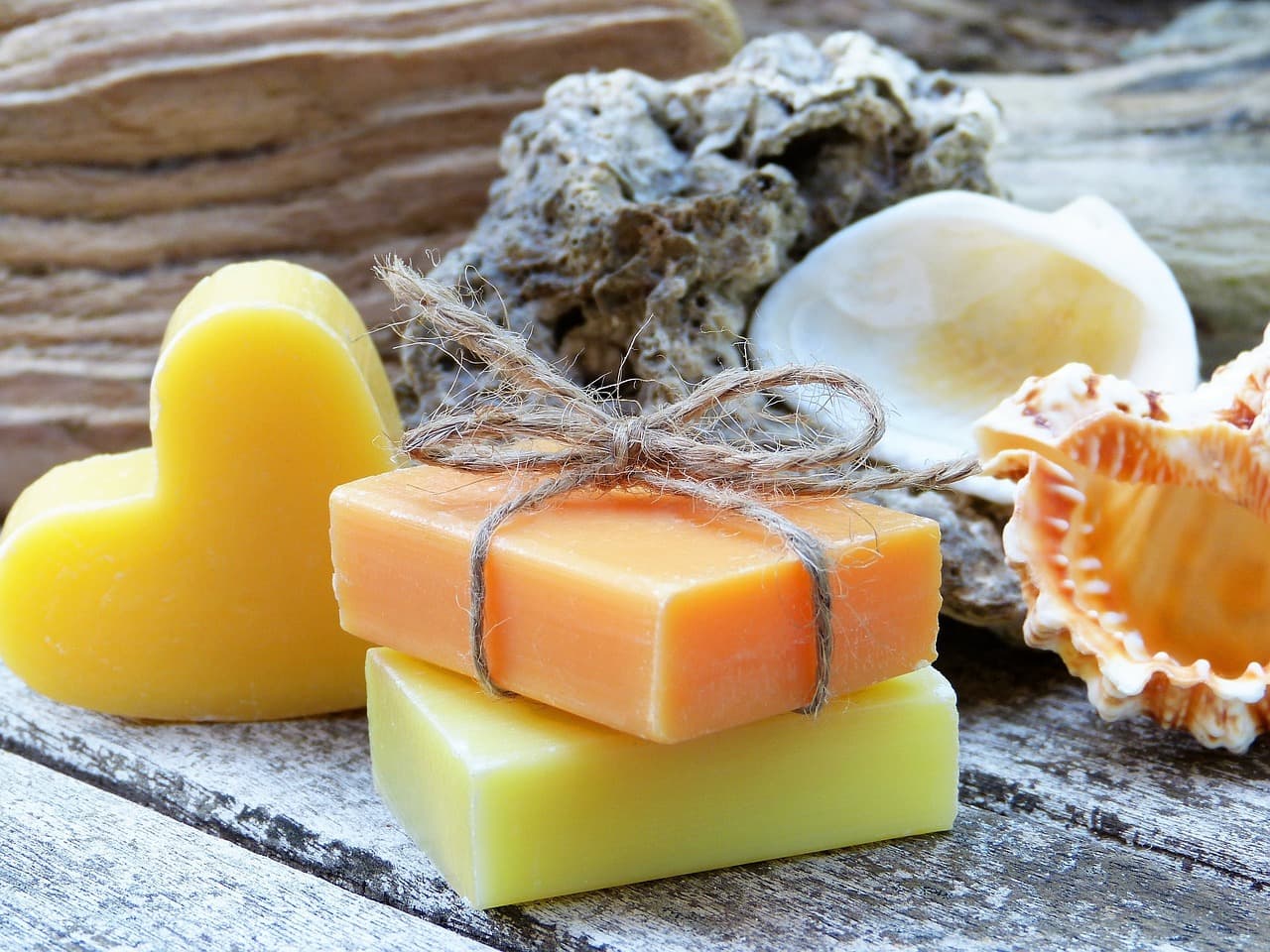
Caustic Soda Flakes
ELRASATM - CSFProduct Specification
SYNONYMS
MOLECULAR WEIGHT
CAS NUMBER
CHEMICAL FORMULA
HS CODE
DENSITY
MELTING POINT
BOILING POINT
VISCOSITY
SHELF LIFE
TYPICAL PROPERTIES
APPEARANCE
Packaging Type

NaOH
bags
Chemical Name
Industry
Application of Caustic Soda Flakes
Caustic soda flakes are widely used across industries due to their strong alkalinity and chemical stability:
- Chemical Manufacturing: A vital raw material used by chemical producers and caustic soda manufacturers for soaps, detergents, dyes, and intermediates
- Paper & Pulp Industry: Used for pulping, bleaching, and ink removal
- Alumina Production: Essential in the Bayer process for extracting alumina from bauxite
- Petroleum Refining: Helps remove acidic impurities during refining
- Water Treatment: Used as a pH regulator and neutralizing agent
- Industrial Cleaning: Powerful degreasing and cleaning chemical
- Food Processing: Used in controlled processes such as fruit and vegetable peeling
- Textile Industry: Applied in mercerization to improve cotton strength and sheen
- Synthetic Fiber Manufacturing: Used in rayon and viscose production
- Oil & Gas Industry: Maintains alkalinity in water-based drilling muds
- pH Modifier: Sodium hydroxide flakes act as an effective pH modifier across chemical industries
About Caustic Soda Flakes
Caustic soda, chemically known as sodium hydroxide, is a strong inorganic base recognized for its ability to neutralize acids, dissolve organic materials, and support complex chemical reactions. Industries worldwide depend on trusted caustic soda manufacturers and caustic soda flakes manufacturers for consistent quality and reliable supply.
High-purity sodium hydroxide flakes are widely sourced by manufacturers operating in chemicals, textiles, pulp & paper, water treatment, alumina refining, petroleum processing, and detergents. Global trade also relies on established sodium hydroxide manufacturers and suppliers worldwide to meet regional industrial demand.
Premium caustic soda manufacturer in USA and international suppliers maintain strict compliance with safety, quality, and environmental regulations to ensure dependable performance across applications.
Manufacturing Process of NaOh Flakes
The manufacturing of NaOH flakes involves the electrolysis of purified brine (sodium chloride solution). This process produces sodium hydroxide, chlorine gas, and hydrogen as co-products. Advanced membrane cell technology is used by leading caustic soda manufacturers to achieve high purity, low impurity levels, and energy-efficient production.
The resulting sodium hydroxide solution is then evaporated and solidified into flakes, ensuring uniform size, easy handling, and high solubility—key requirements maintained by certified caustic soda flakes manufacturers.
Why Choose Elchemy as a trusted Caustic Soda and Flakes Manufacturers?
Choosing Elchemy as your caustic soda manufacturers partner ensures:
- High-purity caustic soda flakes manufactured to global standards
- Reliable global supply supported by strong logistics infrastructure
- Compliance with international safety, environmental, and quality norms
- Technical expertise for diverse industrial applications
- Competitive pricing for bulk and long-term procurement
As a dependable name among global caustic soda manufacturers, Elchemy also supports industries sourcing NaOH flakes, sodium hydroxide flakes, and specialty grades tailored to specific industrial needs.
Features of Caustic Soda Flakes
- Low heavy-metal impurities (iron, lead, copper, nickel)
- Mercury-free and eco-compliant
- High solubility and consistent flake size
- Easy handling and cost-effective transportation
- Manufactured using advanced Bertram – Switzerland technology
- Suitable for food, pharmaceutical, and industrial applications
Product Specification
SYNONYMS
MOLECULAR WEIGHT
CAS NUMBER
CHEMICAL FORMULA
HS CODE
DENSITY
MELTING POINT
BOILING POINT
VISCOSITY
SHELF LIFE
TYPICAL PROPERTIES
APPEARANCE
Packaging Type

NaOH
bags
Chemical Name
Industry
Application of Caustic Soda Flakes
Caustic soda flakes are widely used across industries due to their strong alkalinity and chemical stability:
- Chemical Manufacturing: A vital raw material used by chemical producers and caustic soda manufacturers for soaps, detergents, dyes, and intermediates
- Paper & Pulp Industry: Used for pulping, bleaching, and ink removal
- Alumina Production: Essential in the Bayer process for extracting alumina from bauxite
- Petroleum Refining: Helps remove acidic impurities during refining
- Water Treatment: Used as a pH regulator and neutralizing agent
- Industrial Cleaning: Powerful degreasing and cleaning chemical
- Food Processing: Used in controlled processes such as fruit and vegetable peeling
- Textile Industry: Applied in mercerization to improve cotton strength and sheen
- Synthetic Fiber Manufacturing: Used in rayon and viscose production
- Oil & Gas Industry: Maintains alkalinity in water-based drilling muds
- pH Modifier: Sodium hydroxide flakes act as an effective pH modifier across chemical industries
About Caustic Soda Flakes
Caustic soda, chemically known as sodium hydroxide, is a strong inorganic base recognized for its ability to neutralize acids, dissolve organic materials, and support complex chemical reactions. Industries worldwide depend on trusted caustic soda manufacturers and caustic soda flakes manufacturers for consistent quality and reliable supply.
High-purity sodium hydroxide flakes are widely sourced by manufacturers operating in chemicals, textiles, pulp & paper, water treatment, alumina refining, petroleum processing, and detergents. Global trade also relies on established sodium hydroxide manufacturers and suppliers worldwide to meet regional industrial demand.
Premium caustic soda manufacturer in USA and international suppliers maintain strict compliance with safety, quality, and environmental regulations to ensure dependable performance across applications.
Manufacturing Process of NaOh Flakes
The manufacturing of NaOH flakes involves the electrolysis of purified brine (sodium chloride solution). This process produces sodium hydroxide, chlorine gas, and hydrogen as co-products. Advanced membrane cell technology is used by leading caustic soda manufacturers to achieve high purity, low impurity levels, and energy-efficient production.
The resulting sodium hydroxide solution is then evaporated and solidified into flakes, ensuring uniform size, easy handling, and high solubility—key requirements maintained by certified caustic soda flakes manufacturers.
Why Choose Elchemy as a trusted Caustic Soda and Flakes Manufacturers?
Choosing Elchemy as your caustic soda manufacturers partner ensures:
- High-purity caustic soda flakes manufactured to global standards
- Reliable global supply supported by strong logistics infrastructure
- Compliance with international safety, environmental, and quality norms
- Technical expertise for diverse industrial applications
- Competitive pricing for bulk and long-term procurement
As a dependable name among global caustic soda manufacturers, Elchemy also supports industries sourcing NaOH flakes, sodium hydroxide flakes, and specialty grades tailored to specific industrial needs.
Features of Caustic Soda Flakes
- Low heavy-metal impurities (iron, lead, copper, nickel)
- Mercury-free and eco-compliant
- High solubility and consistent flake size
- Easy handling and cost-effective transportation
- Manufactured using advanced Bertram – Switzerland technology
- Suitable for food, pharmaceutical, and industrial applications
Get Your Quote Instantly! Contact Us Now!
FAQs for Caustic Soda Flakes
Do you supply internationally and which companies supply bulk caustic soda flakes for manufacturing?
+
How to request a quote from chemical companies for caustic soda flakes?
+
How are Caustic Soda Flakes used in water treatment?
+
Can Caustic Soda Flakes be stored indefinitely?
+
What precautions should be taken when handling Caustic Soda Flakes?
+
Is Caustic Soda Flakes the same as lye?
+
Is caustic soda environmentally friendly?
+
Related Products
Related Blogs

Sodium Hydroxide vs Potassium Hydroxide: Differences, Uses, and Applications
Sodium hydroxide vs potassium hydroxide explained—learn the key differences, uses, properties, and a...
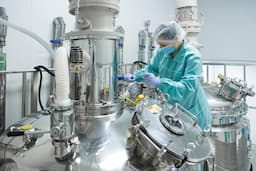
How to Select a Reliable Liquid Caustic Soda Manufacturer
Find out what to look for when selecting a trusted liquid caustic soda manufacturer, including quali...

Caustic Soda or Lime: Which Is Better for Water Treatment and Industrial Use?
Understand the difference between caustic soda and lime for water treatment and industrial use, incl...
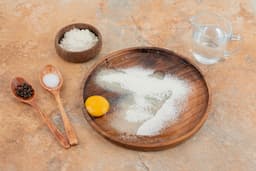
How U.S. Chemical Companies Manage Caustic Soda pH for Safety and Efficiency
Explore how U.S. chemical companies control caustic soda pH for safe handling, efficient production,...
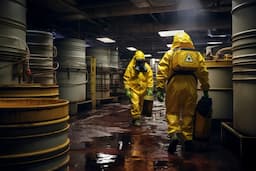
Sodium Hydroxide Storage Guidelines According to U.S. OSHA Standards
Comply with OSHA sodium hydroxide storage standards. Complete guide to safe storage requirements, co...

How Caustic Soda Is Used in Textile Industry: From Cotton Processing to Dyeing Excellence
Caustic soda used in textile industry plays a key role in bleaching, dyeing, and fabric processing, ...

Caustic Soda Price Guide 2026: Market Trends, Bulk Rates & Cost Drivers
Track the latest caustic soda price movements. View the PPI index, regional supply updates, and bulk...

Where to Buy Caustic Soda: A Global Buyer’s Guide
Looking for reliable bulk sodium hydroxide? Source 99% pure caustic soda flakes and lye from certifi...

Caustic Soda for Soap Making: Essential Guide to Quality and Application
Explore the role of caustic soda in soap making, including purity requirements, safe handling, and b...
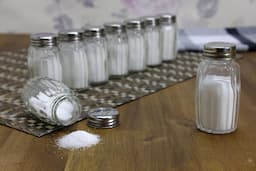
Caustic Soda vs Baking Soda: The Critical Differences Every Household Should Know
Understand the key differences between caustic soda and baking soda, including uses, safety, chemica...

Caustic Soda and Sodium Hydroxide: Understanding the Identical Chemical Behind Different Names
Caustic soda and sodium hydroxide are the same chemical compound (NaOH). Learn the difference in nam...

Caustic Soda Storage and Handling: Essential Safety Guidelines for Industries
Learn caustic soda storage requirements, handling procedures, PPE needs, and emergency protocols. In...
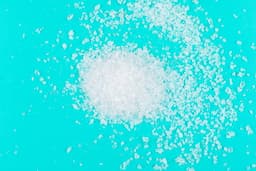
Diverse Caustic Soda Applications Transforming Modern Industry
Explore how diverse caustic soda applications are transforming modern industry, from paper and texti...

The Power of Caustic Cleaning: Safe & Effective Solutions for Homes and Industries
Explore the power of caustic cleaning for homes and industries. Learn safe practices, effective appl...

Caustic Soda Prices – FOB Hazira & CIF Prices Across Global Ports (29 Oct 2025)
Check the latest Caustic Soda prices from Elchemy. FOB Hazira rates for Caustic Soda Flakes & Prills...

2025 Procurement Trends in the Chemical Industry: What’s Changing?
Discover key 2025 procurement trends in the chemical industry, from digital tools to sustainability ...

Top 5 Occupational Hazards and Safety Measures in the Oil and Gas Industry
Discover the top 5 occupational hazards in the oil & gas industry and key safety measures to protect...

REACH and RoHS Compliant Materials: Understanding the RoHS Chemicals List and Banned Substances
Explore REACH and RoHS compliant materials. Learn about banned substances and the RoHS chemicals lis...

Is Caustic Soda Dangerous? 6 Risks Every Industrial Buyer Should Understand
Is caustic soda dangerous? Learn about 6 crucial risks that industrial buyers must know about, inclu...

How India Is Becoming The Next Big Destination For Chemical Sourcing?
Learn why India is emerging as the top destination for chemical sourcing, offering cost advantages, ...
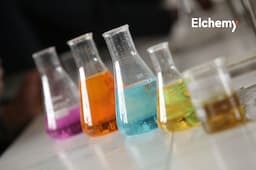
How Speciality Chemicals Are Transforming India Into A Global Superpower?
Discover how specialty chemicals are propelling India's rise as a global superpower, driving innovat...
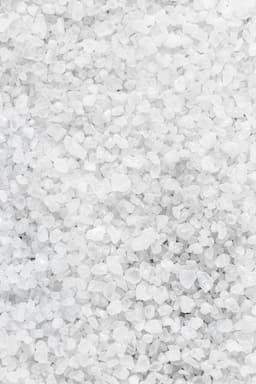
Will India dominate caustic soda capacity additions in 2025
India's caustic soda industry thrives with rising demand in key sectors. A 5.50% CAGR from 2023-2027...
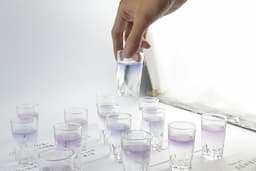
Different Types of Chemicals & Their Uses in Diverse Industries
Discover the different types of chemicals, their uses across industries, and demand trends. Learn ab...
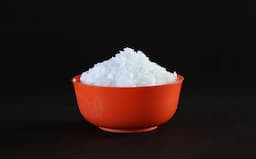
10 Caustic Soda Uses in Industries
Do you know the top 10 caustic soda uses? Let's learn how caustic soda plays a vital role in various...

Major Chemicals in Demand in Textile & Agriculture Industries
Discover what are the major chemicals driving the textile and agriculture sectors.
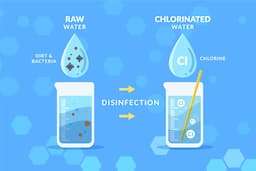
Optimizing the Chlor-Alkali Process: Best Practices for Cost Reduction and Product Quality
Discover how optimizing the chlor alkali process could reduce costs and improve product quality. Lea...
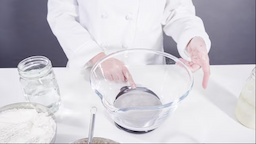
Why Are Chemical Salts Essential in Water Treatment for Industrial Applications?
Discover why chemical salt is essential in industrial water treatment. Learn more about their purifi...
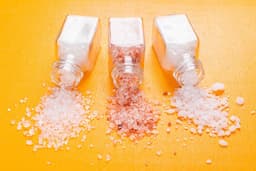
A Comprehensive Guide to Sodium Laureth Sulphate, Caustic Soda Flakes, and LABSA: Sourcing from India Vs China or Indonesia
What is sodium laureth sulphate, caustic soda flakes, and LABSA, sourcing, and its comparison in Ind...
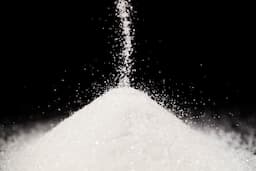
What Is Silica Used For? Industrial Applications and Benefits for Manufacturers
Read more about what is silica used for in the world of manufacturing to benefit electronics, constr...

The Importance of Midstream Oil and Gas in the Energy Supply Chain
Learn all about the importance of midstream oil and gas in the energy supply chain.
FAQs for Caustic Soda Flakes
Do you supply internationally and which companies supply bulk caustic soda flakes for manufacturing?
+
How to request a quote from chemical companies for caustic soda flakes?
+
How are Caustic Soda Flakes used in water treatment?
+
Can Caustic Soda Flakes be stored indefinitely?
+
What precautions should be taken when handling Caustic Soda Flakes?
+
Is Caustic Soda Flakes the same as lye?
+
Is caustic soda environmentally friendly?
+
Related Products
Related Blogs

Sodium Hydroxide vs Potassium Hydroxide: Differences, Uses, and Applications
Sodium hydroxide vs potassium hydroxide explained—learn the key differences, uses, properties, and a...

How to Select a Reliable Liquid Caustic Soda Manufacturer
Find out what to look for when selecting a trusted liquid caustic soda manufacturer, including quali...

Caustic Soda or Lime: Which Is Better for Water Treatment and Industrial Use?
Understand the difference between caustic soda and lime for water treatment and industrial use, incl...

How U.S. Chemical Companies Manage Caustic Soda pH for Safety and Efficiency
Explore how U.S. chemical companies control caustic soda pH for safe handling, efficient production,...

Sodium Hydroxide Storage Guidelines According to U.S. OSHA Standards
Comply with OSHA sodium hydroxide storage standards. Complete guide to safe storage requirements, co...

How Caustic Soda Is Used in Textile Industry: From Cotton Processing to Dyeing Excellence
Caustic soda used in textile industry plays a key role in bleaching, dyeing, and fabric processing, ...

Caustic Soda Price Guide 2026: Market Trends, Bulk Rates & Cost Drivers
Track the latest caustic soda price movements. View the PPI index, regional supply updates, and bulk...

Where to Buy Caustic Soda: A Global Buyer’s Guide
Looking for reliable bulk sodium hydroxide? Source 99% pure caustic soda flakes and lye from certifi...

Caustic Soda for Soap Making: Essential Guide to Quality and Application
Explore the role of caustic soda in soap making, including purity requirements, safe handling, and b...

Caustic Soda vs Baking Soda: The Critical Differences Every Household Should Know
Understand the key differences between caustic soda and baking soda, including uses, safety, chemica...

Caustic Soda and Sodium Hydroxide: Understanding the Identical Chemical Behind Different Names
Caustic soda and sodium hydroxide are the same chemical compound (NaOH). Learn the difference in nam...

Caustic Soda Storage and Handling: Essential Safety Guidelines for Industries
Learn caustic soda storage requirements, handling procedures, PPE needs, and emergency protocols. In...

Diverse Caustic Soda Applications Transforming Modern Industry
Explore how diverse caustic soda applications are transforming modern industry, from paper and texti...

The Power of Caustic Cleaning: Safe & Effective Solutions for Homes and Industries
Explore the power of caustic cleaning for homes and industries. Learn safe practices, effective appl...

Caustic Soda Prices – FOB Hazira & CIF Prices Across Global Ports (29 Oct 2025)
Check the latest Caustic Soda prices from Elchemy. FOB Hazira rates for Caustic Soda Flakes & Prills...

2025 Procurement Trends in the Chemical Industry: What’s Changing?
Discover key 2025 procurement trends in the chemical industry, from digital tools to sustainability ...

Top 5 Occupational Hazards and Safety Measures in the Oil and Gas Industry
Discover the top 5 occupational hazards in the oil & gas industry and key safety measures to protect...

REACH and RoHS Compliant Materials: Understanding the RoHS Chemicals List and Banned Substances
Explore REACH and RoHS compliant materials. Learn about banned substances and the RoHS chemicals lis...

Is Caustic Soda Dangerous? 6 Risks Every Industrial Buyer Should Understand
Is caustic soda dangerous? Learn about 6 crucial risks that industrial buyers must know about, inclu...

How India Is Becoming The Next Big Destination For Chemical Sourcing?
Learn why India is emerging as the top destination for chemical sourcing, offering cost advantages, ...

How Speciality Chemicals Are Transforming India Into A Global Superpower?
Discover how specialty chemicals are propelling India's rise as a global superpower, driving innovat...

Will India dominate caustic soda capacity additions in 2025
India's caustic soda industry thrives with rising demand in key sectors. A 5.50% CAGR from 2023-2027...

Different Types of Chemicals & Their Uses in Diverse Industries
Discover the different types of chemicals, their uses across industries, and demand trends. Learn ab...

10 Caustic Soda Uses in Industries
Do you know the top 10 caustic soda uses? Let's learn how caustic soda plays a vital role in various...

Major Chemicals in Demand in Textile & Agriculture Industries
Discover what are the major chemicals driving the textile and agriculture sectors.

Optimizing the Chlor-Alkali Process: Best Practices for Cost Reduction and Product Quality
Discover how optimizing the chlor alkali process could reduce costs and improve product quality. Lea...

Why Are Chemical Salts Essential in Water Treatment for Industrial Applications?
Discover why chemical salt is essential in industrial water treatment. Learn more about their purifi...

A Comprehensive Guide to Sodium Laureth Sulphate, Caustic Soda Flakes, and LABSA: Sourcing from India Vs China or Indonesia
What is sodium laureth sulphate, caustic soda flakes, and LABSA, sourcing, and its comparison in Ind...

What Is Silica Used For? Industrial Applications and Benefits for Manufacturers
Read more about what is silica used for in the world of manufacturing to benefit electronics, constr...

The Importance of Midstream Oil and Gas in the Energy Supply Chain
Learn all about the importance of midstream oil and gas in the energy supply chain.


































